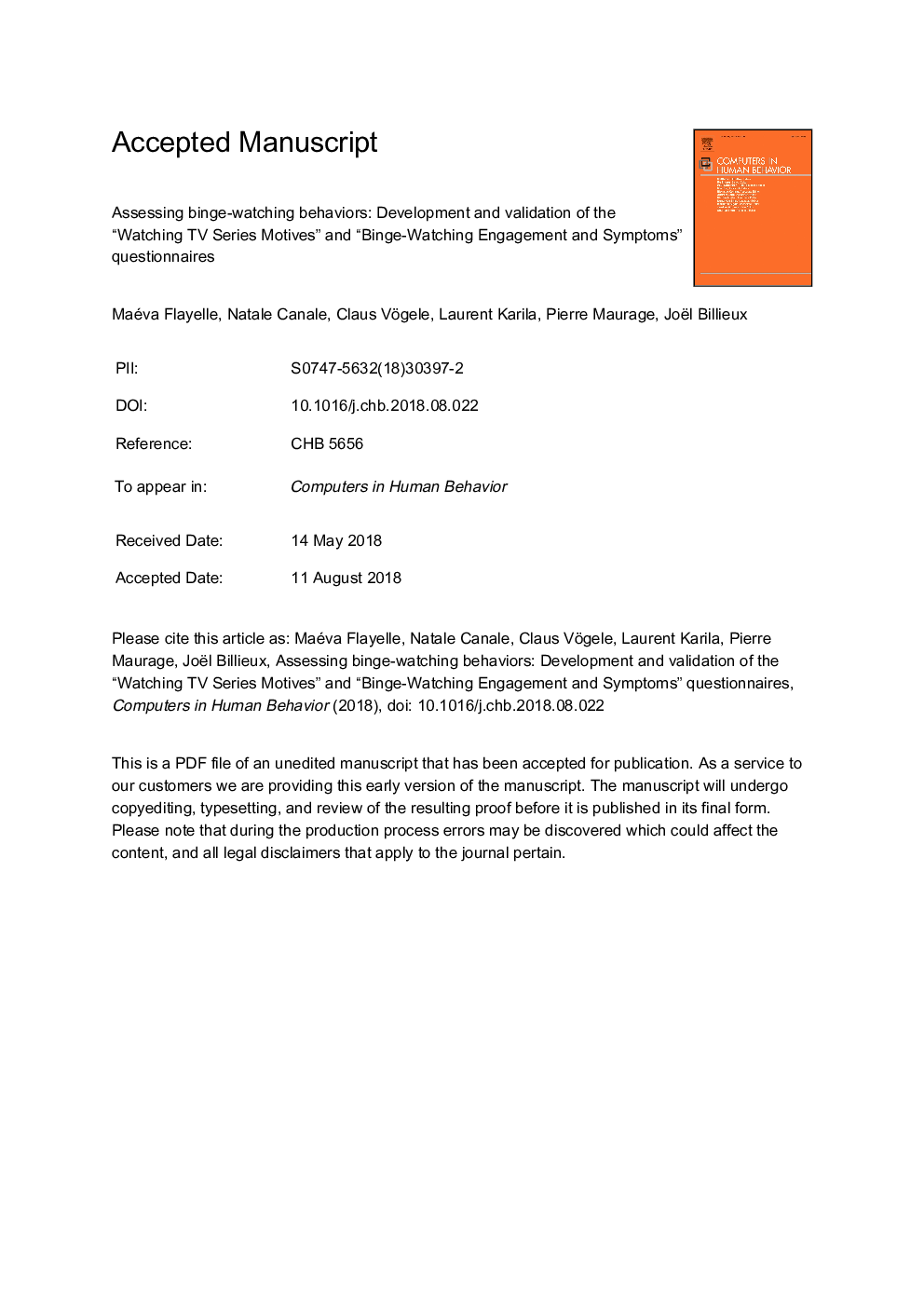| Article ID | Journal | Published Year | Pages | File Type |
|---|---|---|---|---|
| 8947323 | Computers in Human Behavior | 2019 | 51 Pages |
Abstract
The widespread practice of binge-watching (i.e., watching multiple episodes of a TV series in one session) recently generated concerns about associated negative outcomes. Its psychological investigation, however, remains fragmentary. Based on the previous phenomenological investigation of TV series watching, we developed and validated two original assessment instruments, assessing TV series watching motives and binge-watching engagement and symptoms, respectively. Preliminary items were created for each questionnaire, and a focus group with TV series viewers was conducted and analyzed to generate the final instruments. The questionnaires were then administered via an online survey (Nâ¯=â¯6556), together with complementary measures of affect, problematic Internet use and substance use. Exploratory and confirmatory factor analyses, along with correlational analyses, were performed to examine both structural and external validity of the scales. The factorial analyses resulted in a 4-factor model (i.e., emotional enhancement, enrichment, coping-escapism and social) for the Watching TV Series Motives Questionnaire (WTSMQ), and in a 7-factor model (i.e., engagement, positive emotions, desire-savoring, pleasure preservation, binge-watching, dependency and loss of control) for the Binge-Watching Engagement and Symptoms Questionnaire (BWESQ). The results suggest good psychometric properties for both scales. The current study thus provides theoretically-driven and psychometrically sound instruments for further research on binge-watching behaviors.
Related Topics
Physical Sciences and Engineering
Computer Science
Computer Science Applications
Authors
Maèva Flayelle, Natale Canale, Claus Vögele, Laurent Karila, Pierre Maurage, Joël Billieux,
